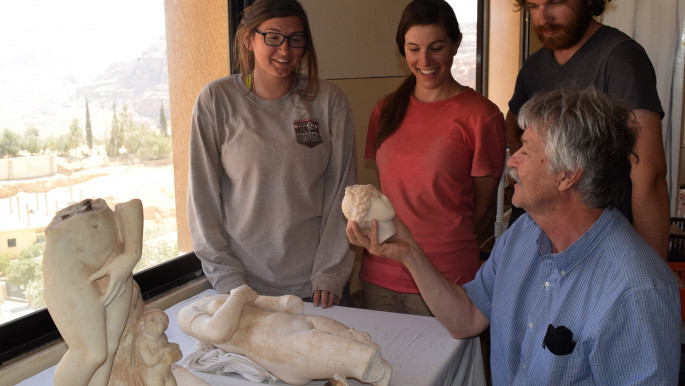'Goddess of love' statues unearthed in Jordan's Petra
Researchers in Jordan's ancient Petra city have unearthed two marble statues of the Graeco-Roman goddess of love, in a bid to discover details of domestic structures among the city's non-elite population.
The team of archaeologists from North Carolina State University and East Carolina University in the United States were excavating what they thought was an average home - before discovering the exquisite marble statues.
"Our team found the pieces while excavating domestic structures in Petra's North Ridge area during May and June," said dig co-director Tom Parker, a professor of history at North Carolina State University.
"The house was more like an urban villa equipped with its own sophisticated bath house," Professor Parker said.
"Our team found the fragmented statues next to the home’s staircase."
Although the recovered statues were found in several pieces, archaeologists confirmed they were largely intact and remained in good condition.
 |
|
| US archaelogists discovered the statues [Tom Parker] |
"I've been doing field work in the Middle East for 45 years and never had a find of this significance," Parker noted.
"These are worthy of display at the Louvre museum or the Metropolitan Museum of Art."
The artefacts date to 106AD, according to experts, when Romans annexed Nabatea - the kingdom once ruled by the Arab Nabataeans.
Other domestic tools were discovered, including installations for cooking and storage, pottery, an iron sword, as well as human and animal bones.
"The Nabataeans were true geniuses in many ways, in part because they were ready and willing to assimilate to and adopt elements of other cultures around them," Professor Parker said.
"They adopted a lot of Egyptian culture when they were neighbours. When Romans took over, they were open to Roman influence."



